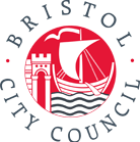Breastfed babies are less likely to have eczema as teenagers, study shows
Babies whose mothers had received support to breastfeed exclusively for a sustained period from birth have a 54 per cent lower risk of eczema at the age of 16, a new study shows.
- 13th November 2017
Babies whose mothers had
received support to breastfeed exclusively for a sustained period from birth
have a 54 per cent lower risk of eczema at the age of 16, a new study led by
researchers from King’s College London, Harvard University, University of
Bristol and McGill University shows.
The study, which is published today in the Journal of the American Medical
Association (JAMA) Pediatrics, examined more than 13,000 Belarussian
teenagers enrolled in the PROmotion of Breastfeeding Intervention Trial
(PROBIT) and found a 54 per cent reduction in cases of eczema amongst teenagers
whose mothers had received support to breastfeed exclusively.
Eczema causes the skin to become itchy, dry, cracked, sore and
red. It affects around one in 5 children and one
in 10 adults in the developed world.
The paper’s lead author, Dr Carsten Flohr, whose work is supported
by the National Institute for Health Research (NIHR) Biomedical Research Centre
at Guy’s and St Thomas’ and King’s College London, said: “The WHO recommends
between four and six months of exclusive breastfeeding to aid prevention of
allergy and associated illnesses. Our findings add further weight to the
importance of campaigns like the Baby-Friendly Hospital Initiative (BFHI),
which is tackling low rates of breastfeeding globally.”
The PROBIT study recruited a total of 17,046 mothers and their
new-born babies between June 1996 and December 1997. Half of the maternity
hospitals and paediatric clinics involved in the study provided additional
support modelled on the recommendations of the WHO and United Nations
Children’s Fund’s BFHI, while the other half continued their usual practices.
Dr Michael Kramer, from McGill’s Faculty of Medicine and the Research Institute of the McGill University Health Centre (RI-MUHC), the Principal Investigator on the PROBIT study, said:
“PROBIT, the largest randomized trial ever carried out
in the area of human lactation, continues to yield scientifically and
clinically important information more than two decades after its
inception.”
Professor Richard Martin from the Bristol Medical School at the
University of Bristol, added:
“We provide convincing evidence from a large
randomised trial of 17,000 mothers and their children that guiding
and helping mothers to exclusively breastfeed results in their
children having a lower risk of eczema as adolescents.”
The UK has one of the lowest rates of breastfeeding in the world.
Only one in three (34 per cent) UK-born babies
have received any breast milk, compared with 49 per cent in the United States
and 71 per cent in Norway. Only 1 per cent of babies in the UK are exclusively
breastfed to six months.
While the study found that the breastfeeding promotion
intervention provided protection against eczema there was no reduction in risk
of asthma with 1.5 per cent of the intervention group (108/7064) reporting
asthma symptoms compared with 1.7 per cent (110/6493) in the control group.
The Promotion of Breastfeeding Intervention Trial (PROBIT) is the
largest cluster-randomised controlled trial ever conducted in the area of human
lactation during infancy. The trial’s directors are: Professor Michael Kramer
(McGill University), Professor Richard Martin (University of Bristol) and Dr
Emily Oken (Harvard University).
Paper
‘The effect of an intervention to promote breastfeeding on asthma, lung function and atopic eczema at age 16 years‘ by C Flohr et al published in JAMA Pediatrics






